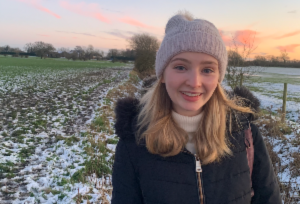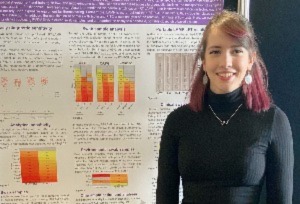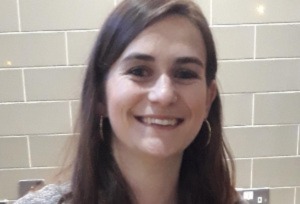Most Promising Science Poster Prize 2022: Journal of Medical Microbiology
Lucy Dillon: 'Interpretable machine learning model to predict the antimicrobial resistance (AMR) phenotype of bacteria from genomic data'

Who or what inspired you to become a scientist?
Biology was always my favourite subject in school, I think the applications of the subject is what piqued my interest the most. My parents also have degrees in science and maths, so they encouraged my interest in biology from an early age.
What are you currently working on and what area of your research excites you the most?
I am currently working on building a user-friendly tool to predict AMR phenotype from genomic data. Building models has already shed light on the importance of combinations of genes (COGs) are essential for AMR phenotype expression. I find understanding AMR within communities the most exciting part of my research.
How would you explain your poster to a child under 10?
Doctors give medicine called antibiotics for infections. Some antibiotics do not work anymore because germs develop the power to become resistant to being killed by the antibiotic. I am making a computer programme to predict whether germs are resistant to antibiotics or not, which is an efficient method.
What would you be doing in your career if you weren’t a scientist?
I thoroughly enjoyed mathematics at school because of the problem-solving aspect so possibly something in that field.
Natasha Edwards: ‘Towards the development of a hand-held RT-LAMP point-of-need assay for foot-and-mouth disease virus’

Who or what inspired you to become a scientist?
I’ve always loved the natural world and decided to pursue this interest at university. During my time at university, I developed a passion for animal health and have decided to take this interest further.
What are you currently working on and what area of your research excites you the most?
I’m currently working on developing novel molecular diagnostic assays for foot-and-mouth disease virus. The area of my research that I’m most excited about is the use of the point-of-care lateral flow device to be able to apply this in a real-life setting to demonstrate its practical use.
How would you explain your poster to a child under 10?
Foot-and-mouth disease is caused by a virus and infects animals such as cows, sheep and pigs. This poster shows a small and quick test that we have made to see if animals have caught the virus.
What would you be doing in your career if you weren’t a scientist?
If I were not working in science, I would have most likely pursued a career relating to women’s history as this is a subject I often read about in my free time.
Vicky Bennett: 'Exploring the role of efflux in bacterial biofilm formation and antimicrobial resistance: The tale of Doris’ catheter'

Who or what inspired you to become a scientist?
I did a placement year in a lab at the University of Plymouth, UK during my undergraduate course and had such a great time that I thought research might be worth a try.
What are you currently working on and what area of your research excites you the most?
I’m currently trying to adapt some clinical urinary P. mirabilis isolates to become better at biofilm formation and block catheters more quickly so that I can identify the genetic changes that take place to allow this to happen.
How would you explain your poster to a child under 10?
Some people need a tube in their bladder to help them go to the toilet, but the tube makes it much easier for bacteria to grow and infections to develop. We’re trying to work out why some bacteria find it so easy to grow on these tubes.
What would you be doing in your career if you weren’t a scientist?
My absolute dream job would be to move to Snowdonia or the Lake District and buy a piece of land to run a campsite and café for walkers and cyclists etc.. I would also join the mountain rescue team.
Image: iStock/ANDREYGUDKOV
